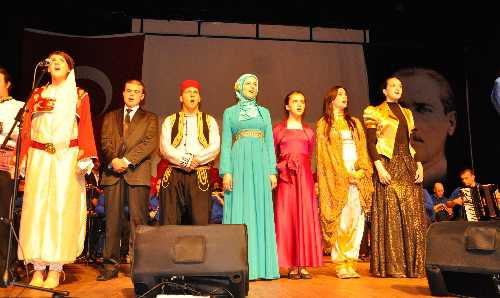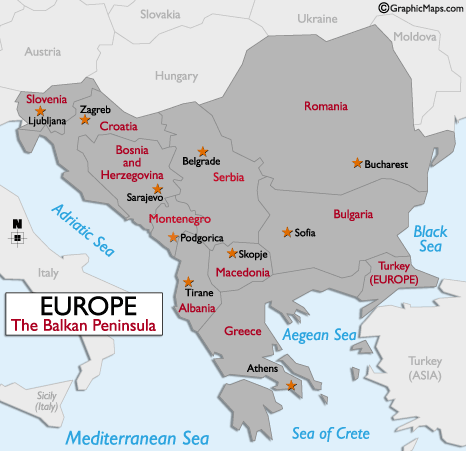ISTANBUL, 24 Rabi al-Thani/17 March (IINA)-Fulfilling one of Islam’s main pillars, a Bosnian man has embarked on the life-time spiritual journey of hajj, preparing himself to cross thousands of miles on foot, The Muslim Village portal reported recently.
“To be honest, before I started on this trip, everybody was frightened for me, asking how will I, as a Muslim, be able to travel though Christian countries like Serbia and Bulgaria,” 47-year-old Senad Hadzic said.
Aspiring to perform hajj, which falls at the end of October, Hadzic first hit the road for his lengthy trip from his hometown in northern Bosnia on December 2011.
The distance is about 3,600 miles from Bosnia to Makkah and he covers between 12 to 20 miles a day.
In his back bag, he carries his copy of the holy Qur’an wrapped in plastic to protect it from weather elements.
He also carries a bible, maps and flags of the six countries he plans to cross. Cutting 600 miles so far, the journey has not been without problems.
In Istanbul for example, he was stuck for 20 days, trying to get permission to walk across the Bosphorus Bridge connecting Europe to Asia, which is open only to vehicles.
At the end, he decided to resume his trip towards Makkah though the Syrian lands where he will wave a Syrian flag with the word “victory” written on it.
“I’ll tell you, this trip has had millions of problems,” Hadzic says.
“I’ll explain it to you like this: God willing, I’m going to enter Asia today, and then Syria. And I’m not afraid of a tank or a bullet, only God. And then when I get to Makkah I will say a prayer for all of us.”
Millions of Muslims from around the world pour into Makkah every year to perform hajj, one of the five pillars of Islam.
Hajj consists of several ceremonies, which are meant to symbolize the essential concepts of the Islamic faith, and to commemorate the trials of Prophet Abraham and his family.
Every able-bodied adult Muslim who can financially afford the trip must perform hajj at least once in a lifetime.
Walking through different countries, Hadzic said he experienced the kindness of many people.
“An old Turkish wise man appeared and when he saw that I came from Bosnia to Istanbul on two feet, he offered me the money to sit on an airplane and go directly to Makkah for the Hajj,” Hadzic said.
“But I rejected this.”
Traveling with very little money, Hadzic says he’s depended on the kindness of strangers for much of the lengthy road.
“In Serbia, people came out on the street and gave me a hat, or some socks,” Hadzic says.
“In one case, a professor in Serbia invited me to stay in his house. This Serbian professor, who was a Christian, told me that I was the first Muslim who had stepped in his house in his life. It was a great honor for me.”
Hadzic claimed he must travel by foot because God told him to in a dream, seeing this journey as a benefit for himself and everyone he meets.
“By this act, I am proving that everything I do is for the love of God,” Hadzic says.
“For all the riches in the world, I would never stop what I am doing.”
He’s not even half way there yet but Hadzic has already learned a lot.
“The point, my friend, is learning the meaning of ‘thank you’. The poor people who live in the countryside love God and support me with generosity,” Hadzic says.
“The rich people in the cities love their ATMs.”
AH/IINA
via Bosnia-Herzegovina/Islam-Hajj: Bosnian Walks to Makkah for Hajj.




